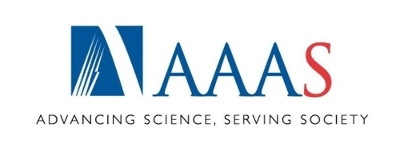AAAS Report Released on Empowering Career Pathways in STEMM

The inaugural AAAS Multidisciplinary Working Group (MWG) – Empowering Career Pathways in STEMM – brought together a group of volunteers to address a key problem for the STEMM enterprise: the barriers that individuals face in entering STEMM careers and the challenges around retaining talent. This new initiative from AAAS provides a platform for its members to address high-priority issues affecting science, technology, engineering, mathematics and medicine (STEMM).
The group has released their report that includes recommendations that would address these obstacles. Their ideas are intended to launch conversations throughout the scientific enterprise on how best to facilitate inclusive pathways into the STEMM workforce.
Learn more about the initiative.
Read the Report
The Multidisciplinary Working Group’s recommendations include short, mid-term and long-term activities. Among their recommendations are improving data collection and analysis methods used to evaluate equity and opportunities within STEMM, and identifying mentoring best practices and developing standardized ways to assess mentor-mentee relationships. The group’s ideas are targeted toward several audiences, including AAAS, other scientific societies, educational institutions and government entities. While AAAS convened the group, the MWG’s recommendations are their own and cover themes ranging from financial aid to community engagement.
Learn about all 35 recommendations in the full report
Comments on the MWG recommendations can be made through the online feedback form.
Multidisciplinary Working Group Members
- Katherine Bailey; The Kavli Foundation
- Monica Ramirez Basco, Ph.D.; Clinical Psychologist, Author, Citizen Scholar, MWG Chair, May 2023 – January 2024
- Matthew L. Blank, Ph.D.; Assistant Professor; Center for Educational Outreach, Baylor College of Medicine
- Randi Chmielewski; Rita Allen Foundation
- Endia J. Crabtree, Ph.D, C.D.P., B.C.M.A.S.; Senior Clinical Product Risk Scientist, Boston Scientific Corp.
- Joel Ducoste, Ph.D.; Associate Dean of Faculty Development and Success and Professor of Environmental Engineering, North Carolina State University
- Rachel A. Figard, Ph.D.; Assistant Professor, College of Engineering; University of Georgia
- Gia Grier McGinnis, DrPH; Executive Director, Center for Community, Service, and Justice & The York Road Initiative, Loyola University Maryland
- Giovanna Guerrero-Medina, Ph.D.; Executive Director, Ciencia Puerto Rico; Director for Diversity, Equity and Inclusion, Wu Tsai Institute at Yale and Yale School of Medicine
- Jeremiah A. Henning, Ph.D.; Assistant Professor, Department of Biology, University of South Alabama
- Robert Hickey, Ph.D.; Professor of Geography, Central Washington University; Executive Director, AAAS-Pacific Division
- Piyush Kumar, Ph.D.; Postdoctoral Fellow, Department of Environmental Medicine and Climate Science, Icahn School of Medicine at Mount Sinai; and Associate Editor, Journal of Science Policy and Governance
- Charla Lambert, Ph.D.; Diversity Equity & Inclusion Officer, Cold Spring Harbor Laboratory; President, SACNAS (Society for the Advancement of Chicanos/Hispanics and Native Americans in Science)
- Craig Milgrim, M.S.; Professor Emeritus, Biology; Trustee, Board of Trustees; San Diego Community College District
- Sumali Pandey, Ph.D.; Associate Professor, Minnesota State University Moorhead
- Glenda M. Prime, Ph.D.; Professor of Science Education; Dean, School of Education and Urban Studies and Director of the Center for the Elimination of Educational Disparities, Morgan State University
- Ashley L. Ruba, Ph.D.; Human Factors Engineer, Arthrex; Founder, After Academia
- Bonnielin Swenor, Ph.D., M.P.H.; Director, Johns Hopkins Disability Health Research Center; Endowed Professor of Disability Justice and Health, Johns Hopkins School of Nursing, Johns Hopkins Bloomberg School of Public Health, Johns Hopkins School of Medicine
- Jacob Swiatek; Student at Georgetown University
- Susi (Sturzenegger) Varvayanis; Cornell University
and Julie Rosen, American Association for the Advancement of Science (AAAS)
The group examined why some individuals enter and thrive in the STEMM enterprise while others face barriers that dissuade them from considering a career in STEMM. Or if they do join the STEMM workforce, they are kept from advancing or they leave the enterprise altogether.
The MWG was charged with proposing opportunities for change to support diverse career growth and achievement, including:
- creating new and flexible entry points for STEMM careers
- challenging traditional benchmarks for success
- changing incentives for recruiting and retaining talent
- cultivating and respecting the whole person by supporting professional and personal development


